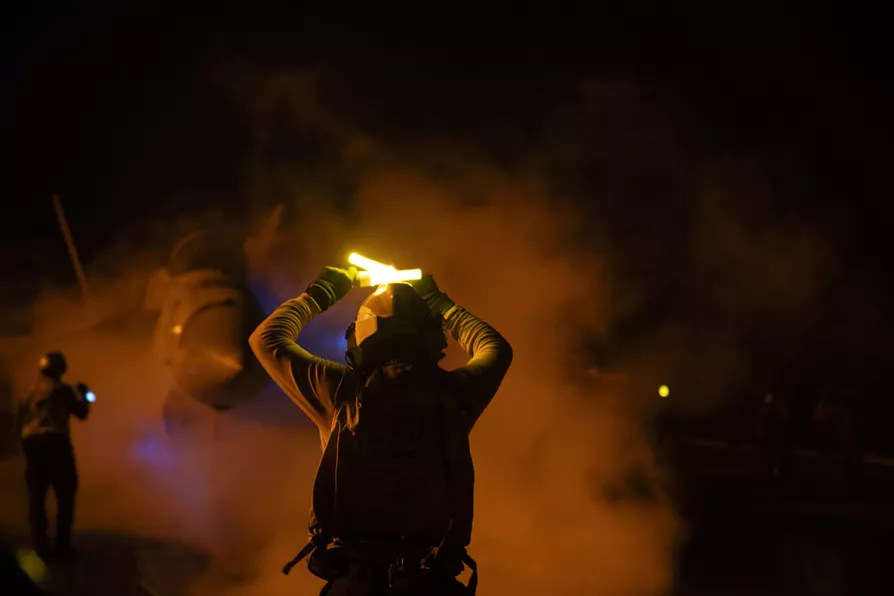John Wojcik pays tribute to a black US activist who spent six decades at the forefront of struggles for voting rights, economic justice and peace – reshaping US politics and inspiring movements worldwide
The United States is the world’s biggest military superpower. So why can’t they defeat a ‘faction’ like the Houthis?

 An aircraft preparing to launch from USS Dwight D. Eisenhower (CVN 69) during flight operations in the Red Sea, January 22, 2024
[Kaitlin Watt/U.S. Navy via AP]
An aircraft preparing to launch from USS Dwight D. Eisenhower (CVN 69) during flight operations in the Red Sea, January 22, 2024
[Kaitlin Watt/U.S. Navy via AP]
THE United States military is unarguably the most powerful and well-armed fighting force in the world. Yemen’s Houthis are generally described as a “faction” and on January 17 were classified by the US government as a “specially designated global terrorist” group.
Britain and the US are bombing alleged Houthi military installations in Yemen in an effort to deter the Houthi attacks on commercial ships in the Red Sea. The Houthis have vowed to continue the maritime assaults until Israel ends its siege of Gaza.
But the bombings and the terrorist classification have changed virtually nothing. President Biden even admitted two weeks ago that the air strikes have not served as a deterrent.
Similar stories

Ministers vote to escalate war on starving Palestinians












